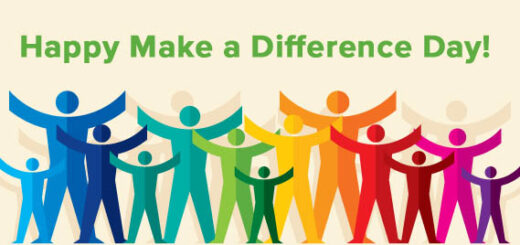UW professor offers a recipe to have civil conversations on emotionally-charged issues
EDITOR’S NOTE: This is the first of a series of columns focused on fostering civil discourse and dialogue, which is an action item of the Our Valley Our Future effort.
I think it’s fair to say that many of us avoid conversations with folks who don’t agree with us about emotionally-charged issues like politics. The nastiness we see in social media and the news makes us leery of wading into those minefields and potentially damaging friendships or relationships in the process.

So, I was intrigued when the Wenatchee YWCA hosted a talk by University of Washington Professor David Smith titled “Civil Conversations in an Angry Age.” Smith is a professor of religious and philosophical studies who teaches at the Osher Lifelong Learning Institute.
I thought he gave one of the most important and thought-provoking talks I’ve heard, and I think we could all benefit from his perspective. I recorded the talk and have posted it on my podcast. You are invited to listen by accessing artofcommunityncw.com.
“My mission as an educator is not to tell people what to believe about these things but it’s to empower people to think for themselves about things that matter,” he told us. To do that requires a commitment to fairness, balance and accuracy and also requires one to appreciate that each of us is human and fallible.
Smith has a fascinating life story. He was born into a family that he described as to the right of evangelical Christianity. He talked about his 15-year journey in which he put his beliefs to the test until he ultimately made the decision to adopt more progressive views. The process, he said, “was very slow, very rational and it was painful.” His decision was not understood by many of the people from his fundamentalist past.
Because of this background, Smith is intensely interested in teaching people skills and habits that that can open up ways to understand others. You can be deeply committed to your views and at the same time open minded and curious, Smith told us. “It’s possible to have a civil conversation that doesn’t really accomplish anything,” he said. Getting away from the notion of bringing people around to our way of thinking is essential to this kind of engagement.
He traced some of the lack of civility back to differing belief systems and life experiences of people. He suggested we view people with opposing views with a sense of curiosity about their life experiences and backgrounds. He suggested that if you or I had different life experiences, chances are we would have different views.
Having the discipline to view opposite views with such a perspective is very difficult indeed. One of the reasons it is so difficult is that each of us strongly identifies with our beliefs, Smith told us. People say, “I am a Republican” rather than saying “I agree with the Republican world view and typically vote that way.” It is no wonder we feel attacked when others disagree with our views.
Smith offered a recipe for having effective discourse on challenging topics that I think is very helpful.
– Enter into a difficult conversation doing one’s best to exercise humility, self-control and courage.
– Look for common humanity. Focusing on what we share as human beings rather than what separates us helps us see others as worthy human beings.
– Have the intention to exercise civility before, during and after any dialogue is a way to keep improving our skills in this area.
– Go into the conversation communicating honestly. Speaking truthfully, listening deeply, agreeing when you can agree and disagreeing when you cannot is a constructive practice.
– Adopt an attitude of curiosity. Staying curious helps us keep an open mind even while we might disagree vehemently about certain issues.
Smith’s talk had deep intellectual underpinnings, but it was exceedingly practical in encouraging us to develop the habits of civil conversations. Some subjects with some people will never be productive, but we can find ways to break through the silence with many people and learn more about them. We might just learn something important in the process — that we can disagree but not resort to hate.

